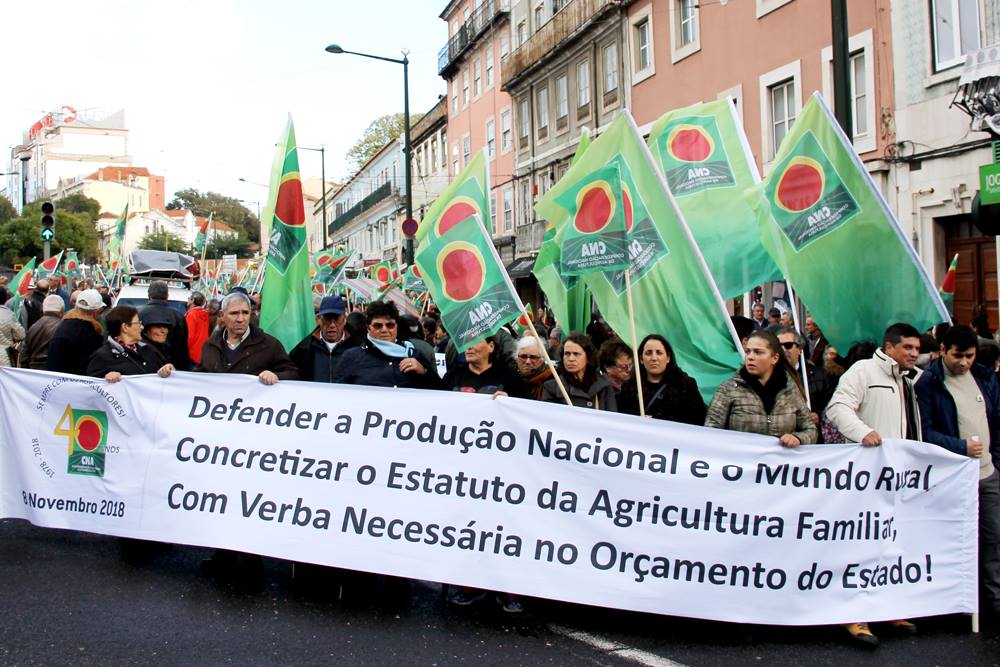Portugal: Reorient Agricultural Policy Toward Domestic Production and Food Sovereignty in Response to US Tariffs, CNA Urges Government

In response to the increase in U.S. tariffs on imports from the European Union, the CNA reaffirms its long-standing criticism of the liberalized international trade model, which prioritizes the interests of large corporations and exposes both farmers and consumers to market volatility and shifting economic policies. The negative impact of these new tariffs on national production is a clear example of these consequences.
The export of agro-forestry products—such as wine, olive oil, and cork—will be particularly affected, disrupting production flows. While family farming primarily serves the domestic market, small and medium-sized farmers will also feel the impact, especially due to the increased competition in the internal market caused by redirected products.
Given this context, it is essential to implement support measures for the most affected sectors, including market interventions to prevent price drops, thereby protecting farmers who are already struggling with low production prices. In addition to diversifying export markets to mitigate the impact of U.S. tariffs, the CNA stresses the urgent need to shift away from the paradigm of total trade liberalization and the “produce for export” policy. This export-oriented strategy, pursued by successive governments, has not only failed to shield us from the harmful effects of market instability but has also created an alarming dependence on foreign agro-food products, leading to an unsustainable trade deficit.
The CNA also cautions against the reflexive tendency to present the proliferation of free trade agreements as a solution, arguing that this merely repeats the same mistake that has led us to the current situation.
The real solution lies in reorienting agricultural policy toward the domestic market within a framework of Food Sovereignty. This involves prioritizing short agro-food supply chains through the creation and promotion of local fairs and markets, and by supplying public institutions—such as schools and hospitals—with locally produced goods from Family Agriculture.
The CNA further calls for a thorough revision of the Common Agricultural Policy (CAP) guidelines, which have been shaped under the influence of the World Trade Organization and are constrained by assumptions that limit their effectiveness—particularly when it comes to linking subsidies to production and regulating both markets and production levels.
The adoption of measures by the Portuguese government to mitigate the impact of the new tariffs—and the necessary reorientation of national agricultural policy toward the domestic market—must not be contingent upon decisions made in Brussels.
It is also important to highlight that in its recently published “Vision for Agriculture and Food,” the European Commission openly subjects EU agriculture to the pressures of free trade agreements. This strategy is expected to drive down prices and create further imbalances in agricultural markets, posing a new threat to farmers—especially small and medium-sized producers.
The CNA had the opportunity to present its position during a meeting held this Monday (April 7) with the Minister of Agriculture.
The organization hopes that both the Minister and the new Government will act to implement these proposals in support of national production. As crises become more frequent, the urgency of building agricultural policies rooted in the principles of Food Sovereignty grows ever more apparent. These goals are aligned with the Declaration on the Rights of Peasants and Other People Working in Rural Areas, which in Portugal can be advanced through the full implementation of the Family Agriculture Statute.
For Portugal’s Food Sovereignty, we need more small and medium-sized farmers, more Family Agriculture, and a stronger commitment to national production!
The CNA Board Coimbra, April 7, 2025
